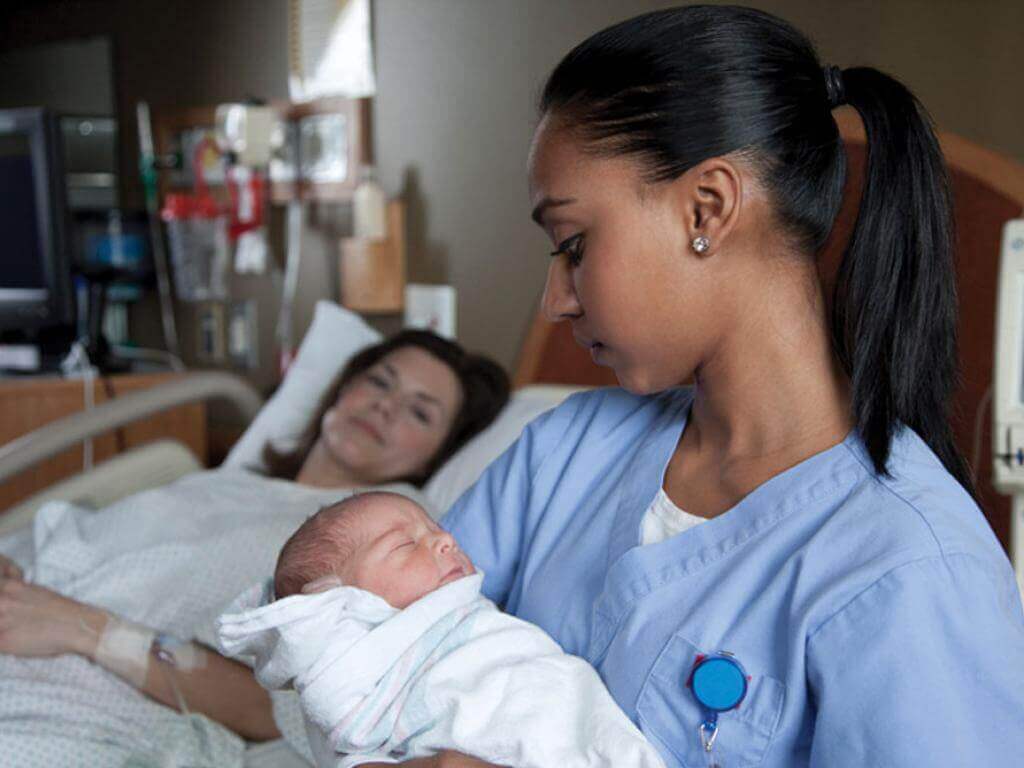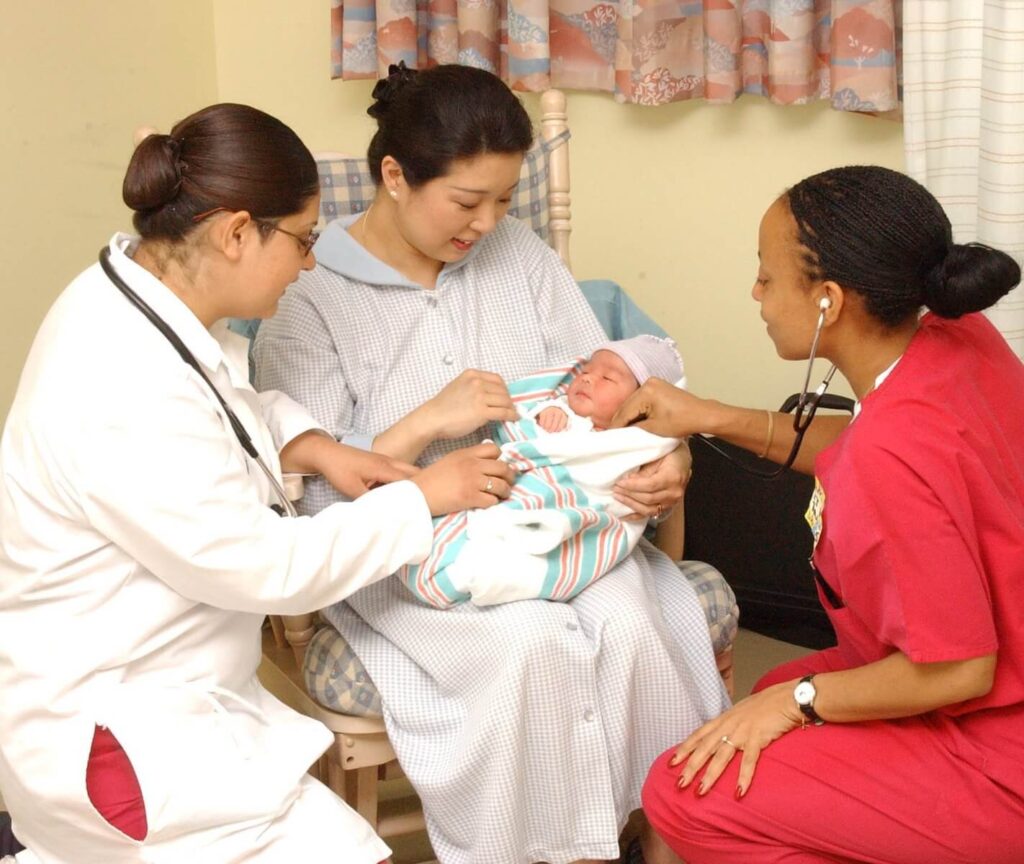Are you in the market for a new job? Looking for something that would allow you to help people and spend your days around precious newborn babies? Well, then the position of postpartum nurse certainly seems to fit you perfectly.
And if you don’t know what that job entails exactly or you’re not sure about the conditions you need to meet for this job, you’ve certainly come to the right place. In the rest of this article, we will be discussing all the most important details you need to know if you want to pursue this line of work.
So, without any further ado, here’s everything you need to know about how to become a postpartum nurse and the duties these nurses have.
What is a postpartum nurse?
First and foremost, what is a postpartum nurse? This is a kind of nurse specially trained to provide help and assistance to new mothers and their babies. They do not monitor just the physical health, though – making sure the mother is mentally well and doesn’t suffer from postpartum depression is a big part of the job, too.
Additionally, these professional nurses will teach new mothers how to breastfeed properly and show them everything they need to know about taking care of a newborn child. The aim is to make the mother feel confident when the time comes to take the baby home.
You will encounter postpartum nurses in pretty much all institutions where babies are born – from hospitals to community clinics.

How to become a postpartum nurse?
Primarily, one has to be a registered nurse in order to apply for the position of a postpartum nurse – check Velju for available positions. After that, if they get the job, there may be some further training involved.
Obviously, having a lot of experience as a nurse can help a lot in getting this job, and that experience doesn’t necessarily have to be as an exclusively postpartum nurse because a post-anaesthesia nurse, for example, may be exceptionally valuable here, too. Many hospitals won’t limit their nurses to just one unit, so a broad skill set will help you a lot.
Qualifications
Qualifications required for a postpartum nurse are not the same in all hospitals, but no matter where you apply, you will have to be a fully-trained registered nurse. So, a licensed vocational nurse may not be enough.
After that, the hospital may demand that their postpartum nurses have at least the degree of Bachelor of Science in the field of Nursing, although in some cases an associate degree may also be deemed sufficient.
Additionally, separate certificates in Electronic Foetal Monitoring and Maternal Newborn Nursing can also come in handy. While the former is often a requirement for employment, the latter will often be demanded by the employer after a certain time at the position.
Postpartum nurses – duties and responsibilities
We’ve already mentioned some of the things a postpartum nurse does in an earlier part of this article, but there are many more tasks this kind of nurse has to execute. Still, monitoring the overall state of the mother and the newborn child remains a top priority, of course. Postpartum depression is one of the most common problems that have to be dealt with.
The nurse will also follow the doctor’s instructions on treating the patient if the patient has wounds that need to be tended to or if she requires IVs. However, a special plan detailing the care of each mother and her child will also have to be created. A lead nurse can help a lot with all of this.
Education is also a big part of the job, and on top of the aforementioned help with breastfeeding, a postpartum nurse will also teach a new mother how to bathe a baby, take care of the umbilical cord properly, and much more.
But emotional support is also incredibly important because new mothers have to learn how to make decisions properly for the baby. Many women are quite insecure when it comes to that at first, so encouragement they receive from the nurse is exceptionally important as it sets the mother on the right track.
And with enough experience, you can eventually become a legal nurse consultant and offer advice and assessments in various fields of medicine.

How much does a postpartum nurse earn in the EU?
As you probably know very well, standards and salaries differ quite a lot across the EU. Therefore, you always have to take into account where in the EU you’re working when comparing salaries (we’ll give you the exact numbers in just a second).
But as a rough estimate, we can say that on an annual level they range from about 12 000 EUR in Bulgaria to as much as 60 000 EUR in Germany. As you can see, the differences are quite substantial.
What pretty much all countries have in common in this respect is the fact that you can expect your salary as a postpartum nurse to rise about 15% or more in the next five years. So, there is a lot of potential in this line of work.
Another feature this job has across the EU is regular bonuses, although the exact amount will once again very much depend on the country you’re in.
Additionally, in most countries, postpartum nurses work as labour and delivery nurses, and working in the postpartum unit is a part of the job. So, there’s not a postpartum nurse position per se, but you will get to do that if you’re working on delivering babies.
Highest paying countries for postpartum nurses
When it comes to the highest paying countries for postpartum nurses, Germany leads the way with 29 EUR/hour. Ireland and France are also very good destinations with their hourly wage for this job being between 25 and 26 EUR, and in Italy, you can get a bit more than 23 EUR.
Naturally, we are talking about average salaries here because your earnings can differ quite a lot depending on the amount of experience you have in this profession.
On the other end of the spectrum, we have already mentioned Bulgaria which pays just under 6 EUR, pretty much the same as Romania.
Countries like Croatia, Estonia, and Portugal are somewhere in the middle, with the hourly rate here ranging from approximately 11 to 13 EUR.
Of course, you always have to keep in mind the overall standard in the country, but these numbers are pretty good indicators of what to expect should you decide to take up this job. Good luck!




